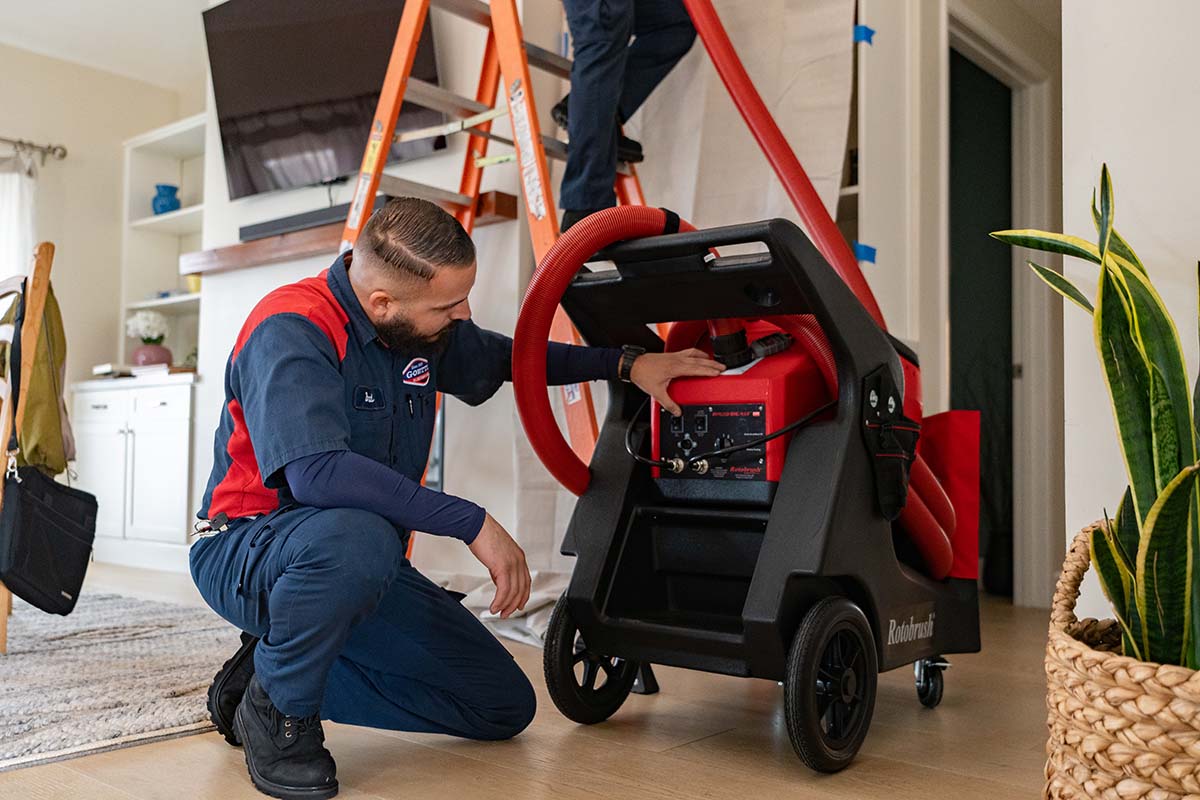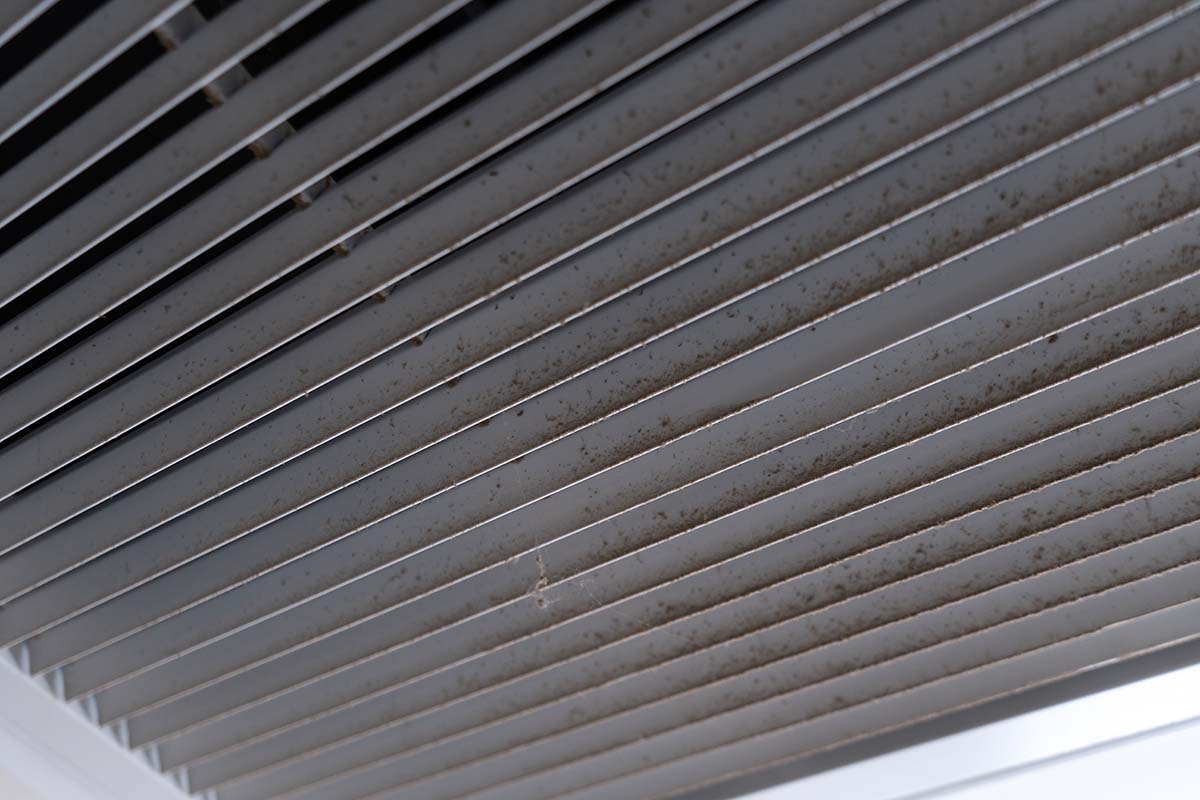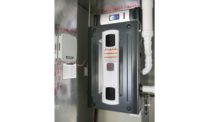chief strategy officer
Cardinal Heating, Cooling, & Plumbing
When it comes to selling indoor air quality (IAQ), an HVAC contractor’s best friend is knowledge. And how is more knowledge achieved? Education. In the case of IAQ, that education comes from training, of course, to learn how to actually install the equipment and how it works, but it also comes from observing and reading the room in order to successfully talk about IAQ with homeowners and address their concerns and needs. If an HVAC contractor possesses that type of knowledge, they’re in a good position to sell IAQ equipment.
Education, Education, Education
To sell IAQ, contractors need to have a thorough understanding of all things IAQ. This means knowing about the various types of IAQ solutions, how to approach the topic with homeowners, how the equipment functions, what their homeowner’s needs are, and more.

SOLUTIONS: Contractors have to have a deep understanding of IAQ, to meet each homeowner’s needs. (Courtesy of Goettl Air Conditioning)
“IAQ products have three essential functions — protecting the client's investment, removing dirt and dust from a home, and solving allergies and germ challenges,” said Robert McGinnis, vice president of HVAC operations at Rooter Hero Plumbing & Air.
But every homeowner is different, which means each one might need a different solution, requiring HVAC contractors to have a depth of knowledge on the subject.
“A deep understanding of IAQ principles, the science behind different solutions, and the ability to clearly communicate the benefits to homeowners are essential,” said Craig Ouimette, chief strategy officer, Cardinal Heating, Cooling, & Plumbing, in Sun Prairie, Wisconsin. “Customers are becoming more aware of IAQ but often lack the technical expertise to make informed decisions. A knowledgeable contractor can act as an advisor, building trust and demonstrating the value of IAQ solutions.”
Jake Gress, CEO of Goettl Air Conditioning servicing areas of Texas, Arizona, Nevada, and Southern California, said the best thing a contractor can do to sell IAQ equipment is observe.
“At the end of the day, you can visibly see signs of [poor IAQ] — whether it's dust, dirt, debris — it'll actually be in the air or on some of the HVAC components, or even on some of the registers, when you're looking at the home,” Gress said. “And usually when you see certain kinds of signs in nature, like mold … they are kind of a red flag signaling that there's some potential problems. So, a lot of what we coach our techs is to be a detective and look for the signs, but then really try to identify the source of those issues.”

TANGIBLE: When a contractor can physically show the signs of bad IAQ, homeowners are more likely to buy in. (Courtesy of Goettl Air Conditioning)
This is especially so because while it’s one thing to communicate with a homeowner potential issues of their system, it’s another to be able to show them in real-time.
general manager
C & C Heating & Air Conditioning
Becoming Better Educated
When it comes to IAQ education, contractors have to do a lot of legwork themselves.
“They have to do their homework … since there is no industry standard for IAQ or regulation for it,” said Patrick Fagerquist, senior vice president of sales at Decon7. “And there's lots of different companies that manufacture IAQ products. So education — getting to the facts of what IAQ is — is very important … because there's a lot of confusion and misinformation out there in the marketplace.”
According to Fagerquist, one of the biggest pieces of misinformation in this marketplace has to do with cleaning versus disinfecting. Some people associate cleaning with sanitizing or disinfecting, but cleaning is not disinfecting.
“Education is paramount: A contractor's ability to educate is directly linked to their ability to sell IAQ,” said Ouimette. “If a homeowner doesn't understand the problem, they won't value the solution.” He continued to say that effective education involves being able to speak the homeowner’s language, use real-world examples like local allergens or pollution levels, present data-backed benefits revolving around things like energy savings or reduced allergy symptoms, and address common misconceptions head-on.
“Your team must have confidence in the product and be able to explain its benefits in layman’s terms,” said Dayna Hottle, general manager of C & C Heating & Air Conditioning in Roseville, Michigan. “We have many tools, even in the customer’s home, to help stress the importance of IAQ. For example, showing a homeowner a dirt-caked air filter can spark a conversation about how to better filter the air in their home.”
For contractors and techs to become better educated, Hottle said, “attending regular product trainings, utilizing vendors to help educate your team, listening to podcasts, watching YouTube videos, attending seminars, or reaching out to other successful contractors can be beneficial.”
Contractors can also utilize manufacturer resources such as training materials and support offered by IAQ equipment manufacturers, attend industry events that place a focus on IAQ, and even reach out to their vendor and ask to tour the facility.
“We did this at the AprilAire facility in Poynette, Wisconsin, and walked away with a better understanding of the product and personal conviction behind the product we were selling,” Ouimette said.
Homeowner Hesitancy
While due to COVID it is a lot easier to broach the subject of IAQ with homeowners, some are still hesitant about purchasing the equipment. This hesitancy stems from two places: upfront/ongoing costs, or, they just don’t buy into the concept.
“The initial investment and recurring costs can cause homeowners to wonder if the benefits of the product will outweigh the cost,” Hottle said. “However, explaining the potential benefits to their home, their family’s health, and extending the life of their HVAC system can help ease their concerns and allow them to move forward with the sale confidently.”
That’s where knowing just how to talk to a homeowner about IAQ comes in handy.
“Without asking the right questions, a contractor doesn't know what is important to that client,” Gress said.
Certain homeowners might not have any IAQ concerns regarding allergies or dust in the house, but rather they have concerns about extending the life of their current system.
“I would explain to them how they’ve disinfected everything they can see their entire life — floors, countertops, sinks, dishes, clothing, toilets, etc. — except for one thing and it affects everybody in the house: your HVAC system. That’s never been disinfected,” Fagerquist said. “So, I’d ask them to imagine the countertop in your kitchen not being disinfected for 10 years — would you ever touch it?”
The truth is many people just don’t understand the need for better IAQ. This is due in part to the whole “seeing is believing” thing. IAQ is an invisible problem.
“Many don't ‘see’ the pollutants,” Ouimette said. “Use simple demos (dusty filter tests, IAQ monitors, or humidity readings) to make the problem tangible.”
Some may also be skeptical of the effectiveness of the equipment if they did choose to purchase IAQ equipment.
“The client has lived in their home with these conditions for a long time,” said McGinnis. “It's our job to explain how not only can we almost eliminate dust, but we can stop colds from spreading while actively cleaning the home.”
Not to mention that even if a homeowner did realize the importance of IAQ, they might not have a clue as to what solutions are out there for them. All of this often makes IAQ a hard sell.
“What we really try to coach our techs on is educating that homeowner around the product offerings and what each of those products can provide from a solution standpoint,” Gress said. “It can be a really hard product to sell … So education really is key in order to inform of the things that could actually solve specific issues/eliminate or alleviate different concerns they may have.”
Challenges of Selling IAQ
Since IAQ is already a hard sell, it’s important for contractors not to oversell it.
“Whatever product you are trying to promote, don’t over-promote it,” Fagerquist said. “Don’t make claims that the product or solution can’t stand behind, because that will get you into trouble.”
It doesn’t help that the HVAC industry still suffers from the stereotype of the “snake oil” salesperson trying to scare customers into a purchase. So in selling IAQ, the focus should be less on the sale and more on demonstrating how IAQ can help by emphasizing and identifying potential issues of said home — then stepping back and letting the homeowner decide what next step they’d like to take.
McGinnis said contractors need to become well-versed and a master of three IAQ items: upgraded filtration, high-intensity ultra-violet (UV) light, and an active air scrubber.
“Then see what item solves the client's needs. There are so many brands that fall in these three categories,” McGinnis said. “Find the ones that prove their testing, that they believe in and offer training courses.”
He continued that the biggest challenge facing contractors who want to sell IAQ equipment is education.
“These products do so much that clients are almost in disbelief,” McGinnis said. “Hands down, IAQ can change your client's life. Buying a new unit simply does the same as their old one. Sure, it might be quieter and less expensive to use, but it does the same as it always has. IAQ, on the other hand, can help someone with allergies breathe better, sleep better, and give them the quality of life they didn't know they were missing.”
Another challenge is getting the homeowner to prioritize their air quality on par with their finances, which can be solved by effectively discussing IAQ with them.
“Most people spend 90% of their time indoors … and you want to make sure that they see the importance of having that healthy, comfortable IAQ that’s provided by you, for their families,” Gress said.








